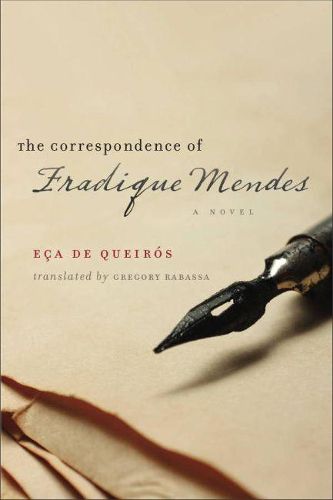Readings Newsletter
Become a Readings Member to make your shopping experience even easier.
Sign in or sign up for free!
You’re not far away from qualifying for FREE standard shipping within Australia
You’ve qualified for FREE standard shipping within Australia
The cart is loading…






The Correspondence of Fradique Mendes-ostensibly letters, with an arch introduction-actually ranges widely and revels in many forms of discourse. In this singular work, originally published in 1900, one finds meditations, dialogues, observations, grand shifts in tone, occulted ironies, pastiches, lampoons, and an underlying hilarity throughout. Readers will be reminded of Ishmael’s lofty digressions, of Ivan Karamazov’s dialogues with his imaginary devil, of Flaubert’s stylistic virtuosity, of Gogol’s quiet comedy-and more. Fradique, at one point, disingenuously tells us he will never write a book because no language is capable of representing the real significance of anything. But Fradique’s letters go on to offer us nearly everything, and they presciently anticipate much of what is rightly celebrated in the best of postmodern writing. This magnificent novel now appears in a beautiful and deft translation that will entertain and delight with wit, intelligence and many surprises.
$9.00 standard shipping within Australia
FREE standard shipping within Australia for orders over $100.00
Express & International shipping calculated at checkout
The Correspondence of Fradique Mendes-ostensibly letters, with an arch introduction-actually ranges widely and revels in many forms of discourse. In this singular work, originally published in 1900, one finds meditations, dialogues, observations, grand shifts in tone, occulted ironies, pastiches, lampoons, and an underlying hilarity throughout. Readers will be reminded of Ishmael’s lofty digressions, of Ivan Karamazov’s dialogues with his imaginary devil, of Flaubert’s stylistic virtuosity, of Gogol’s quiet comedy-and more. Fradique, at one point, disingenuously tells us he will never write a book because no language is capable of representing the real significance of anything. But Fradique’s letters go on to offer us nearly everything, and they presciently anticipate much of what is rightly celebrated in the best of postmodern writing. This magnificent novel now appears in a beautiful and deft translation that will entertain and delight with wit, intelligence and many surprises.